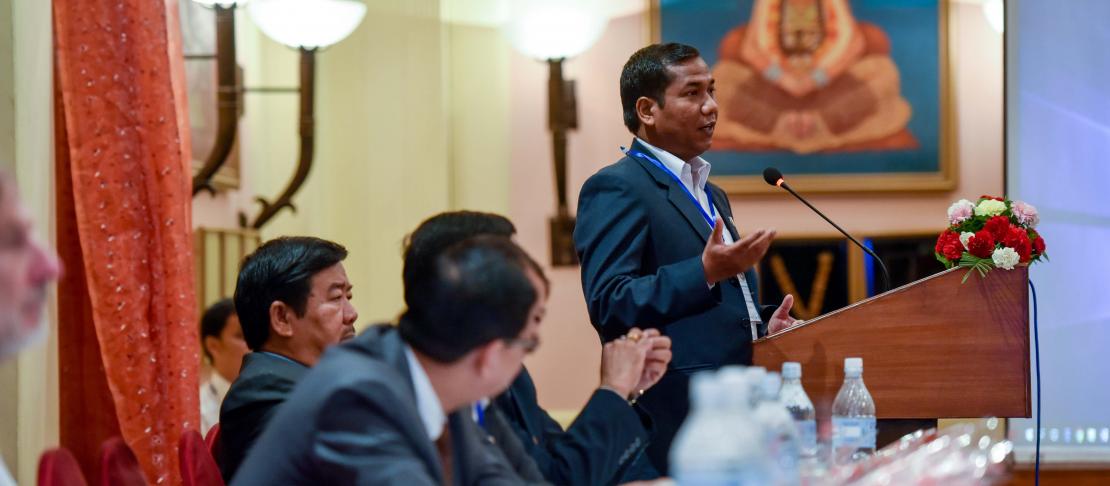Government to play an important role in scaling out Climate-Smart Village in Nepal

Government of Nepal has already started several policy and institutional initiatives for climate change adaptation in agriculture.
“The concept of Climate-Smart Village will be gradually implemented by carrying forward the climate adaptation programme.” said the President of Nepal, while addressing the parliament on “Policies and Programmes of the Government of Nepal for 2016-17”.
The inclusion of the Climate-Smart Village (CSV) in Government’s ‘Policies and Programmes’ document can be seen as a potential pathway to pilot a scaling out strategy. Understanding the significance of government’s involvement in scaling out CSVs, the CGIAR Programme on Climate Change, Agriculture and Food Security (CCAFS) in partnership with the Local Initiatives for Biodiversity, Research and Development (LI-BIRD), has extended commitment for technical support to National Planning Commission (NPC) and Ministry of Agriculture Development (MoAD) to pilot the programme in few districts of Nepal.
A 13 member Project Advisory Committee (PAC), including members from the MoAD as well as CCAFS and LI-BIRD, has been formed under the chairmanship of Joint-Secretary (Food Security, Agribusiness Promotion and Environment division) to look into the field evidences of implementing CSVs and integrate the learnings into current, as well as future policies and programmes of the government.
Apart from this, the MoAD also hosted an international workshop on 'Mainstreaming Climate-Smart Agriculture (CSA) for Sustainable Agriculture Development in Nepal' in September 2016. The workshop, organised in collaboration with CCAFS and LI-BIRD aimed to:
- demonstrate the evidences of CSV approach for scaling out CSA in Nepal,
- bring together key stakeholders of Agriculture Development Strategy (ADS) and build stakeholder agreement for scaling up/out CSA in Nepal,
- sensitize donors and international research organizations about government’s priority to promote CSA, and
- develop a strategy to increase investment for implementation of CSA in different agro-ecological zones of Nepal.
The learnings from the workshop are expected to be integrated in the national planning process.
Government of Nepal has submitted its Intended Nationally Determined Contributions (INDC) to the UNFCC in February 2016. Though the INDC doesn’t have special focus on agriculture in terms of mitigation commitment, it mentions the need for bilateral and multi-lateral support from different stakeholders, to enable farmers to adopt climate-friendly technologies and practices for reducing the impacts of climate change. Also, the Ministry of Environment has started the process of developing a National Adaptation Plan (NAP) through various thematic groups, similar to the development of National Adaptation Programme of Action (NAPA). MoAD will be leading the thematic group for agriculture and food security. It is very essential to be engaged and disseminate the CSV approach on the process of NAP formulation to integrate the approach into government development plans.
The above policy developments provide a positive outlook for scaling up CSA practices and CSV approach in Nepal. However, strong collaboration, capacity building and policy lobbying is essential to ensure efficient implementation of these policies.
Bikash Paudel is Senior Programme Manager at LI-BIRD Nepal, Nitya Chanana is Research consultant at CCAFS South Asia and Arun Khatri-Chhetri is Science Officer at CCAFS South Asia.



